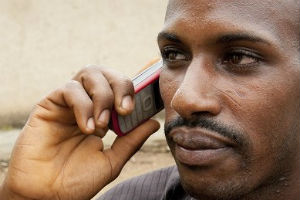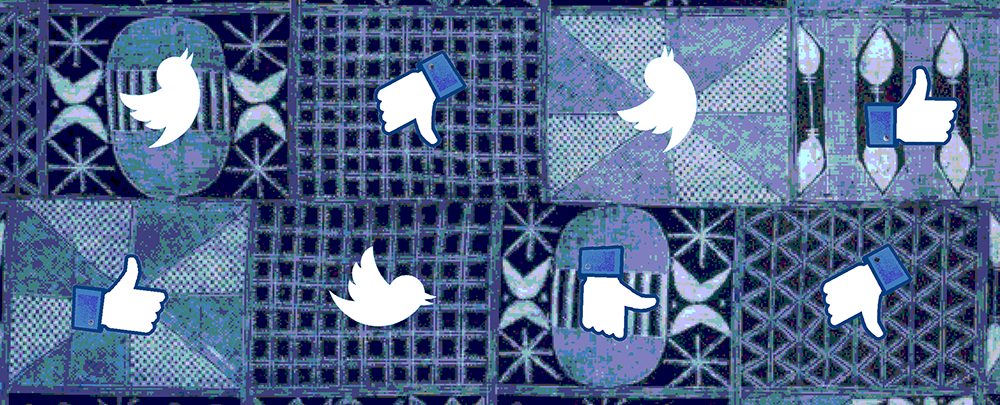
The number of active social media users in Africa has quadrupled from 100 million to over 400 million people since 2016. Three-quarters of these users access the internet through their mobile devices. Users in countries like Nigeria, South Africa, Ghana, and Kenya spend over three hours per day on social media. Africa’s rapidly shifting information landscape has created asymmetric leverage for anti-democratic actors to propagate false information for political ends. Russia has aggressively exported and honed its FIMI tactics in African countries where it seeks to exercise influence. A growing number of domestic political actors and militant Islamist groups have developed similar tactics to manipulate the content seen by users, harass and drive civil society leaders offline, and confuse citizens with a barrage of intentionally misleading information. These campaigns are becoming better concealed and more sophisticated. FIMI represents a destabilizing threat to the open and dependable information pathways on which democracies rely.
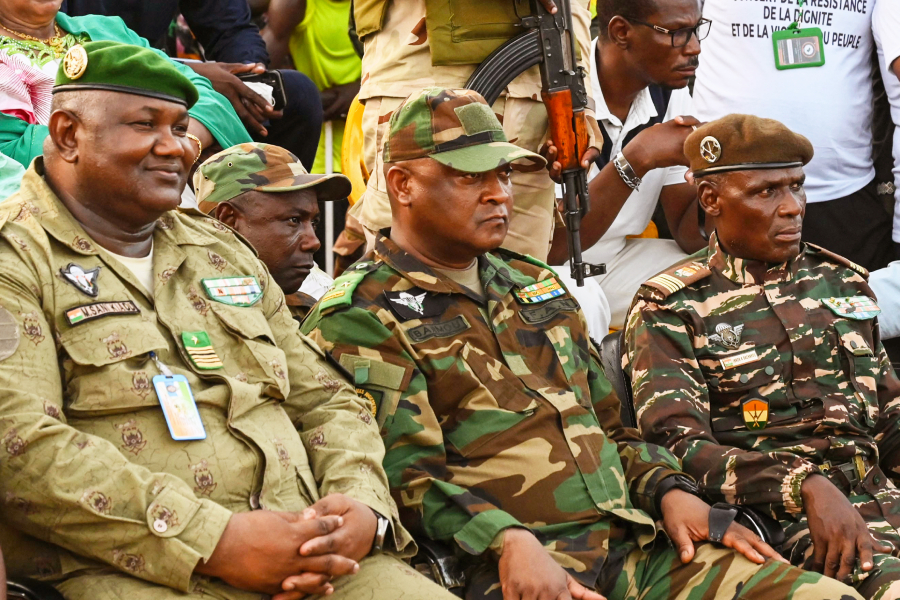
Infographic
Niger Coup Reversing Hard-Earned Gains
After noteworthy gains in the previous decade under democratically elected governments, the derailing of Niger’s constitutional order by the military coup in July 2023 has resulted in a deterioration in security, economic wellbeing, and agency for Nigerien citizens.
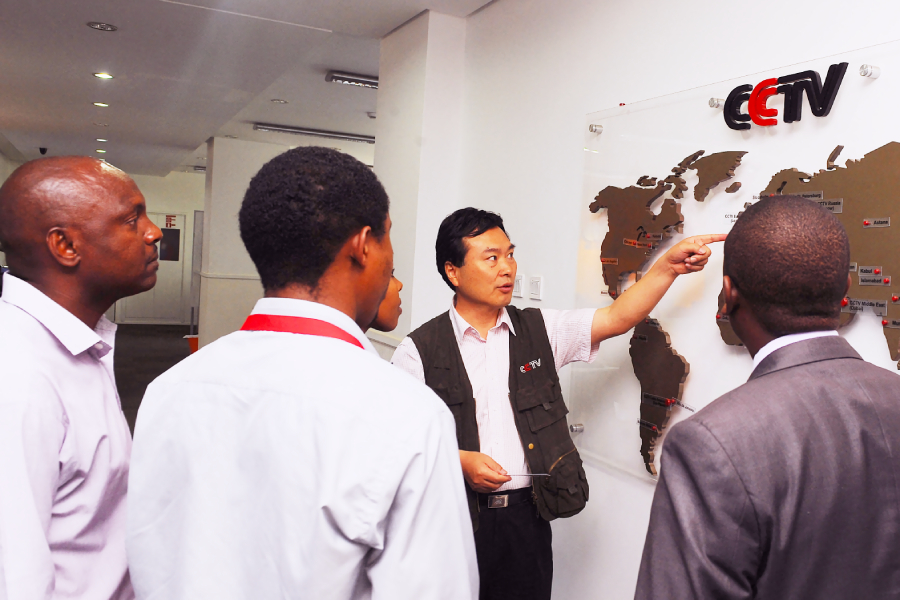
Spotlight
China’s Strategy to Shape Africa’s Media Space
China’s ruling party is leveraging its funding of African media outlets, content sharing, and training of African journalists to advance Chinese narratives, policies, and norms on the continent.
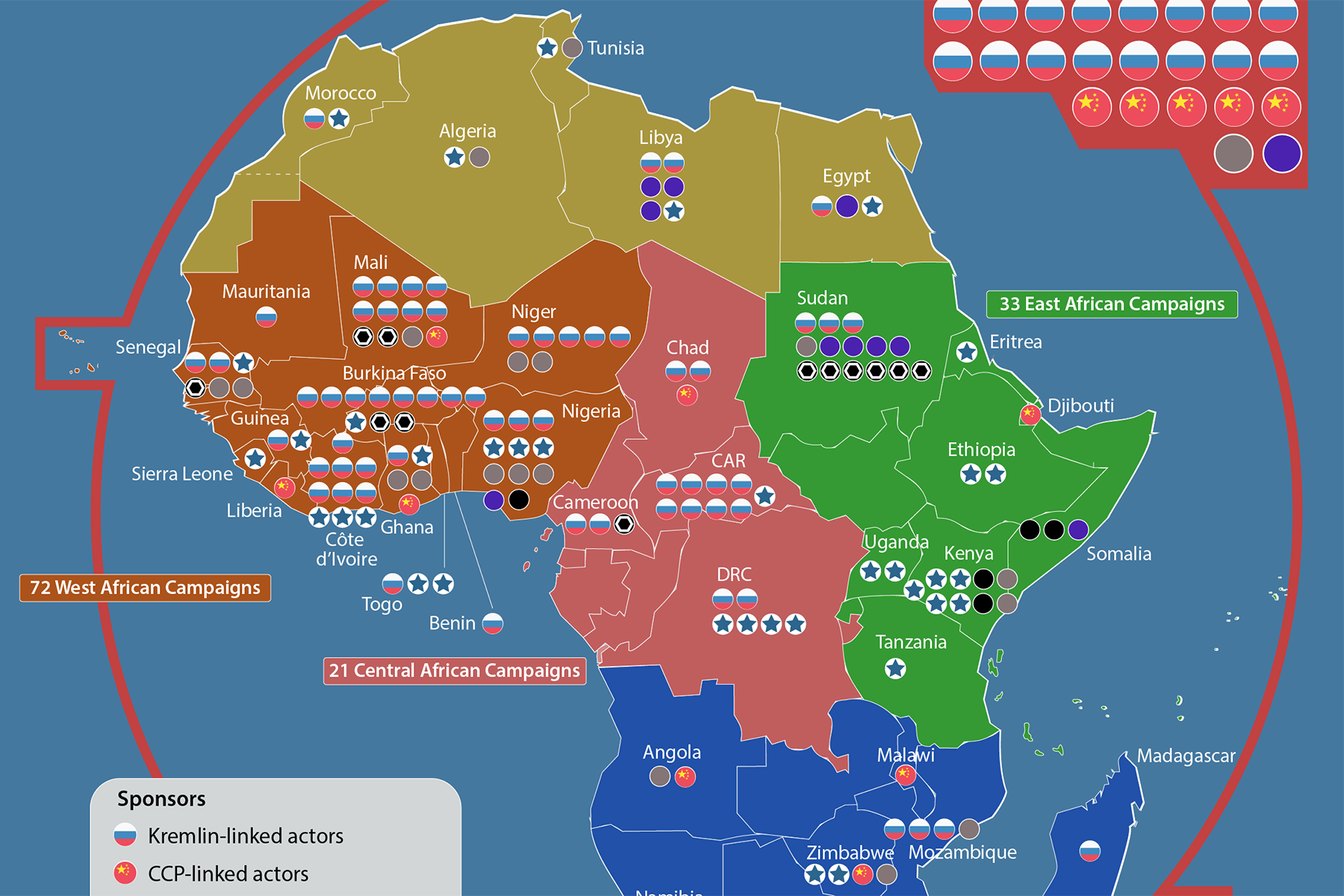
Infographic
Mapping a Surge of Disinformation in Africa
Disinformation campaigns seeking to manipulate African information systems have surged nearly fourfold since 2022, triggering destabilizing and antidemocratic consequences.
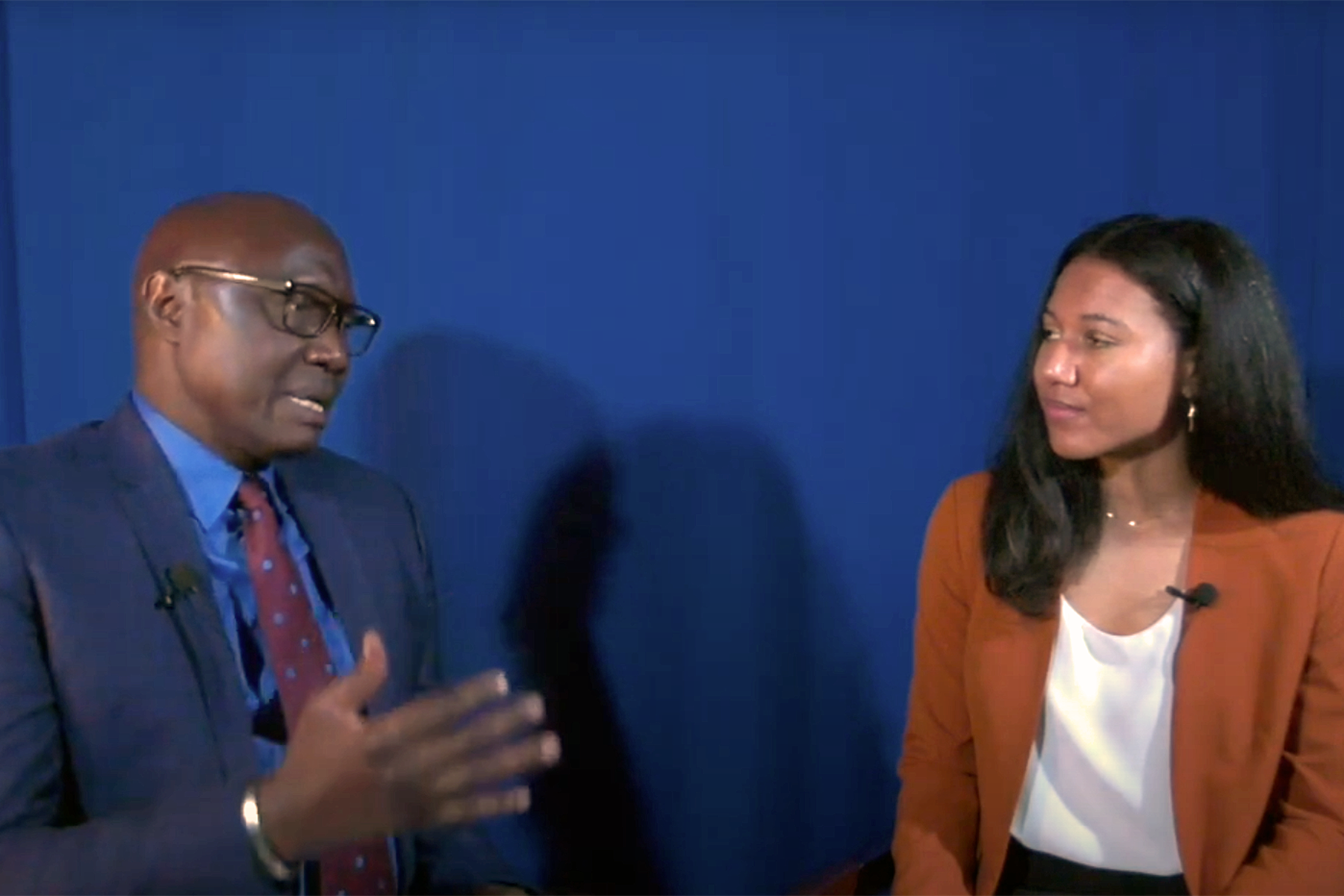
Video
The State of United Nations Peacekeeping Operations in Africa
General Birame Diop assesses the challenging trends facing UN peacekeeping operations in Africa, including loss of host country support, disinformation, and increasingly brazen violent nonstate actors.
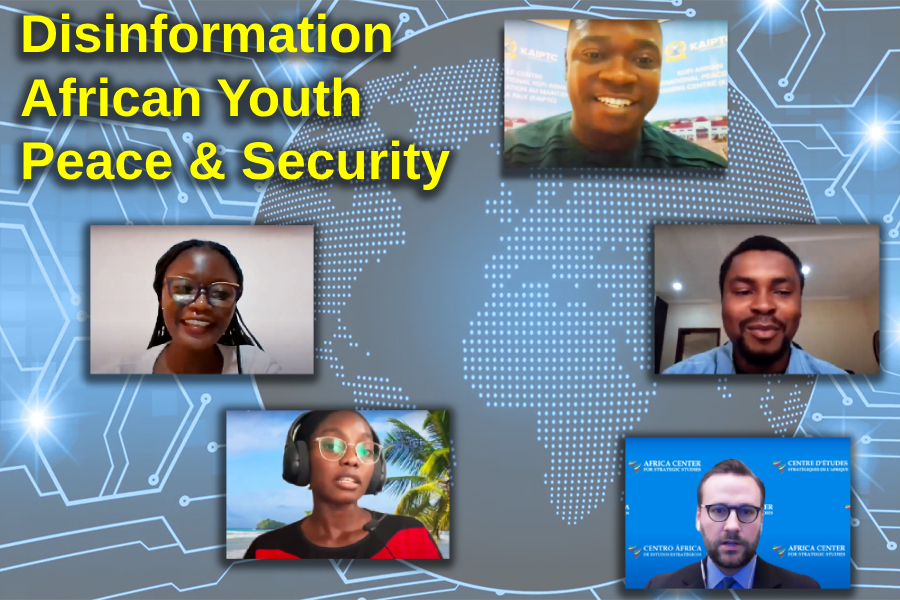
Program Materials
Combatting Disinformation: Empowering African Youth for Peace and Security
The Africa Center for Strategic Studies and the Kofi Annan International Peacekeeping Training Centre (KAIPTC) held an academic webinar to increase awareness and knowledge among African youth about disinformation and its effects on security in Africa.
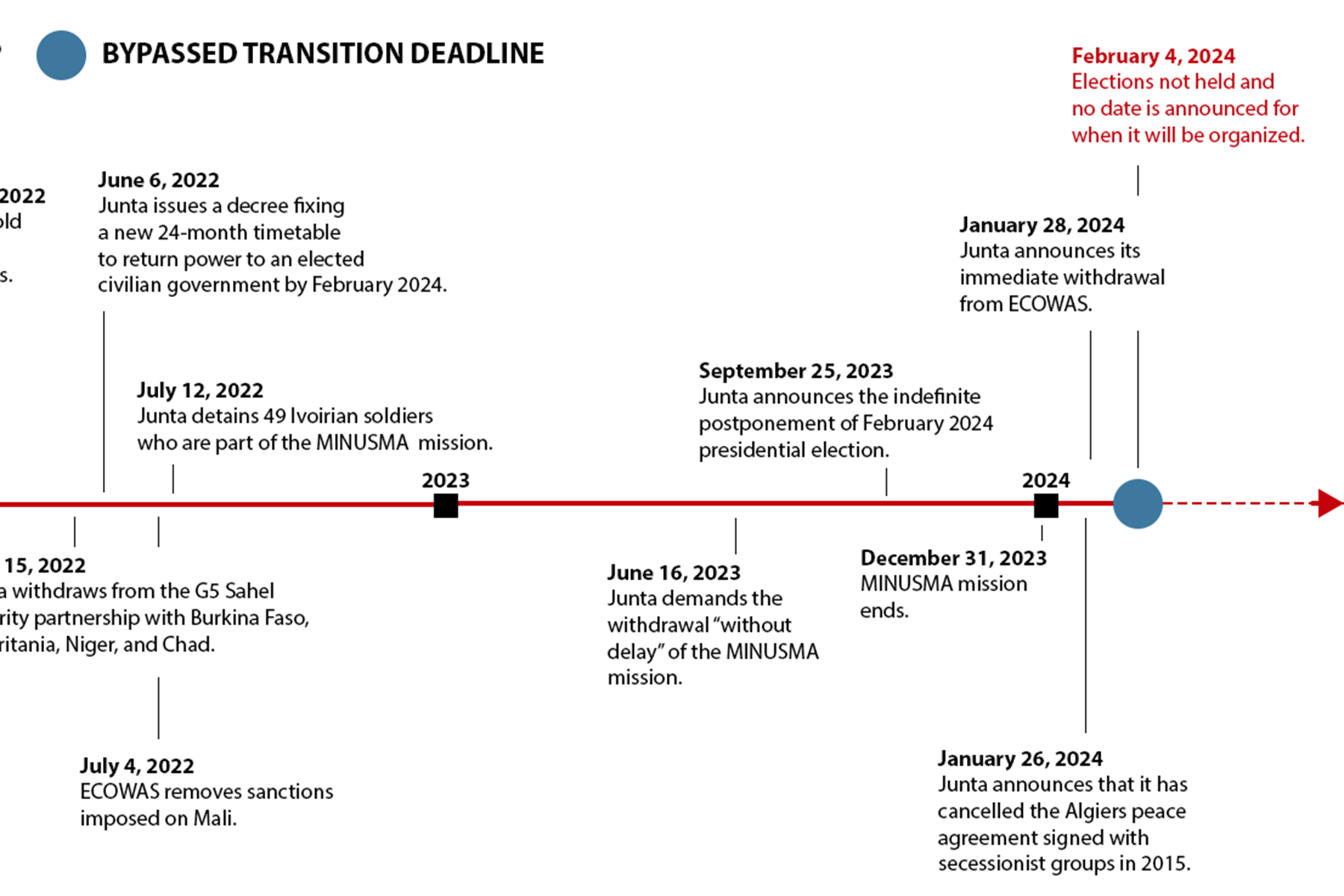
Infographic
Assessing Mali’s Non-Transition
The Malian military junta has repeatedly refused to honor its commitments to transition back to a democratic civilian government, resulting in mounting security and economic costs to citizens.
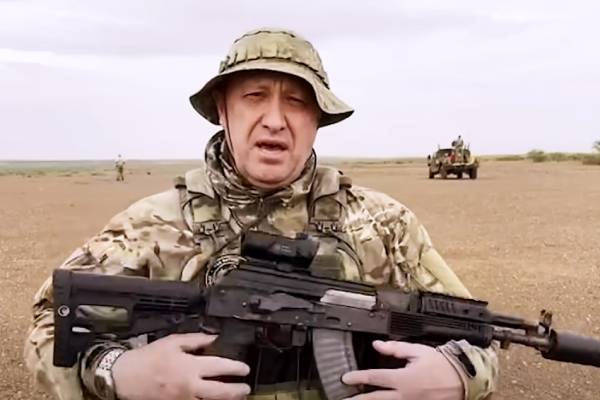
Spotlight
Inflection Point for Africa–Russia Relations after Prigozhin’s Death
By taking over the operations of the Wagner Group after the death of Yevgeny Prigozhin, Russia loses the plausible deniability of Wagner’s irregular and illegal actions central to expanding Russian influence.
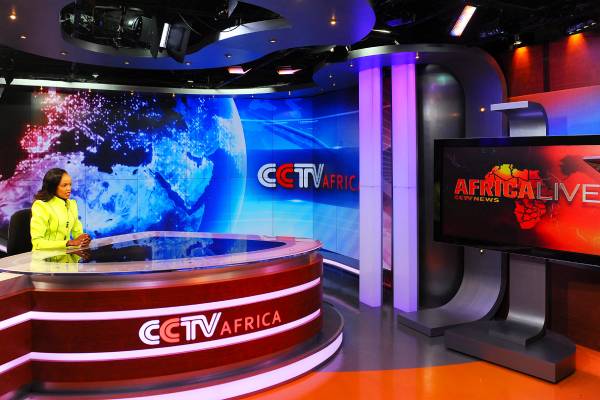
Spotlight
China’s United Front Strategy in Africa
China’s United Front work co-opts well-placed individuals and organizations to cultivate support for and defend China’s goals and interests while isolating China’s opponents in Africa.
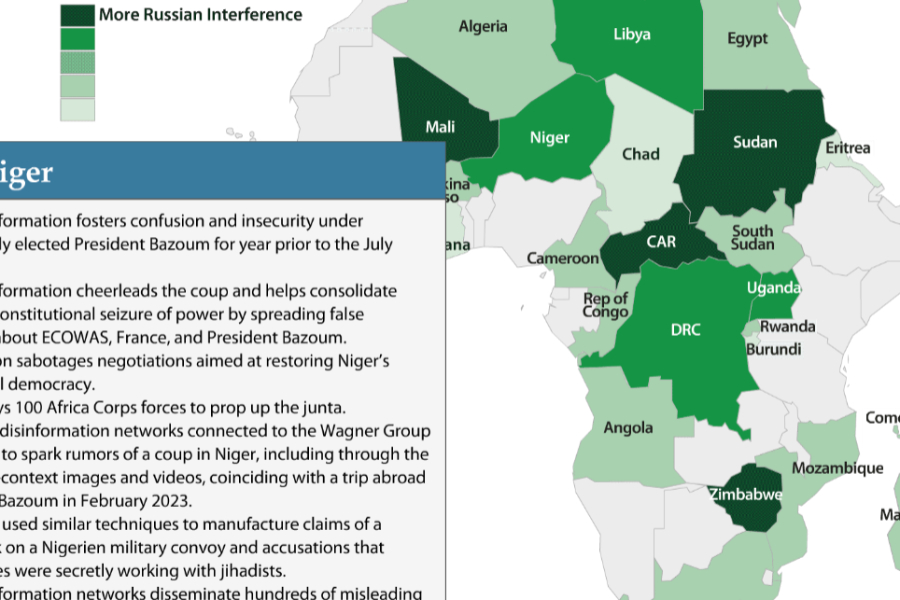
Infographic
Tracking Russian Interference to Derail Democracy in Africa
Systematic efforts by Russia to undercut democracy in Africa have inhibited democratic development in two dozen African countries.
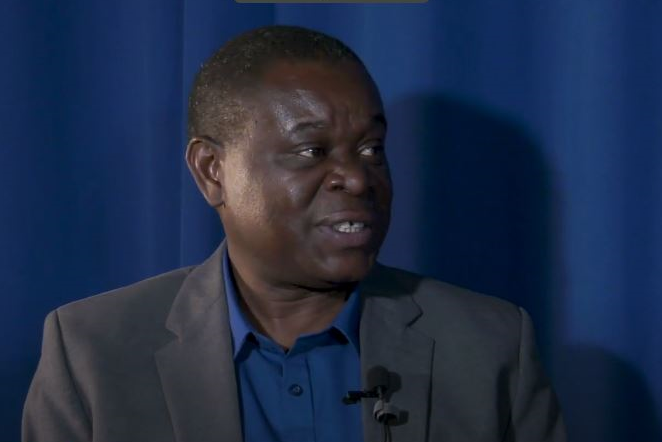
Video
China’s Influence on African Media
China media expert Bob Wekesa reflects on the Chinese Communist Party’s model of total state control of information and its export to Africa.
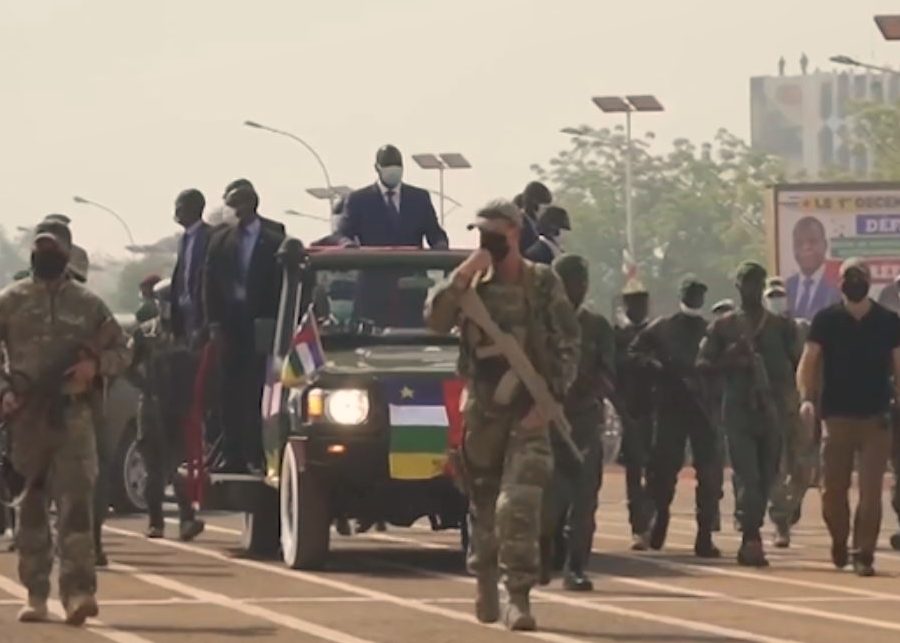
Spotlight
Intervening to Undermine Democracy in Africa: Russia’s Playbook for Influence
Russia has systematically sought to undercut democracy in Africa, both to normalize authoritarianism as well as to create an entry point for Russian influence.

Expert Publication
Disinformation Drilling into Africa’s Information Ecosystems
Rapidly shifting information pathways have created vulnerabilities that foreign powers—led by Russia, China, and the Gulf States—have aggressively exploited.
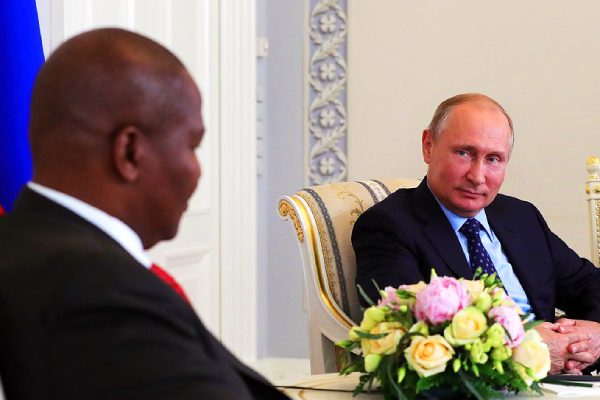
Expert Publication
The Creeping Loss of African Sovereignty
Unaccountable regimes in Africa are highly vulnerable to exploitation by external authoritarian actors—at a heavy cost to citizen sovereignty.
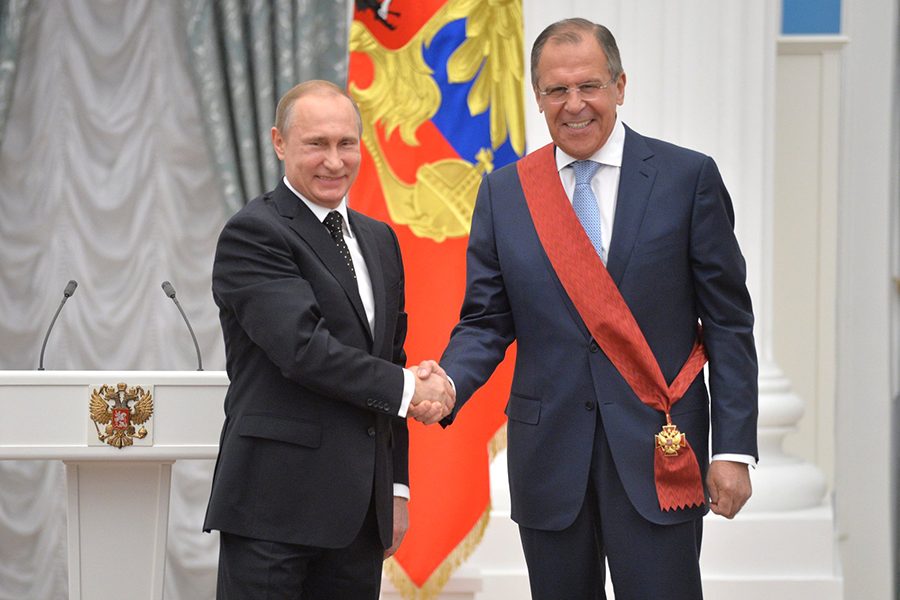
Spotlight
Why Russia is on a Charm Offensive in Africa
Moscow is trying to gain influence in Africa without investing in it, a strategy that can only gain traction if certain African leaders see Russia as a means to validate their own hold on power regardless of popular will.
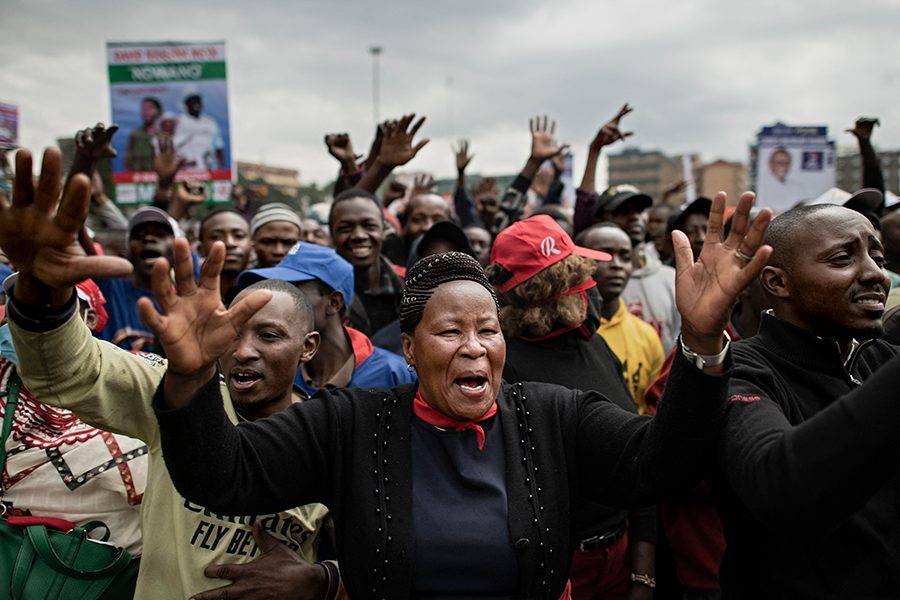
Spotlight
Kenyan Elections—Another Test in the Country’s Democratic Journey
Kenya’s competitive presidential elections reflect hard-earned progress in establishing independent constitutional and judicial guardrails, though a history of electoral violence demands all sides show restraint.
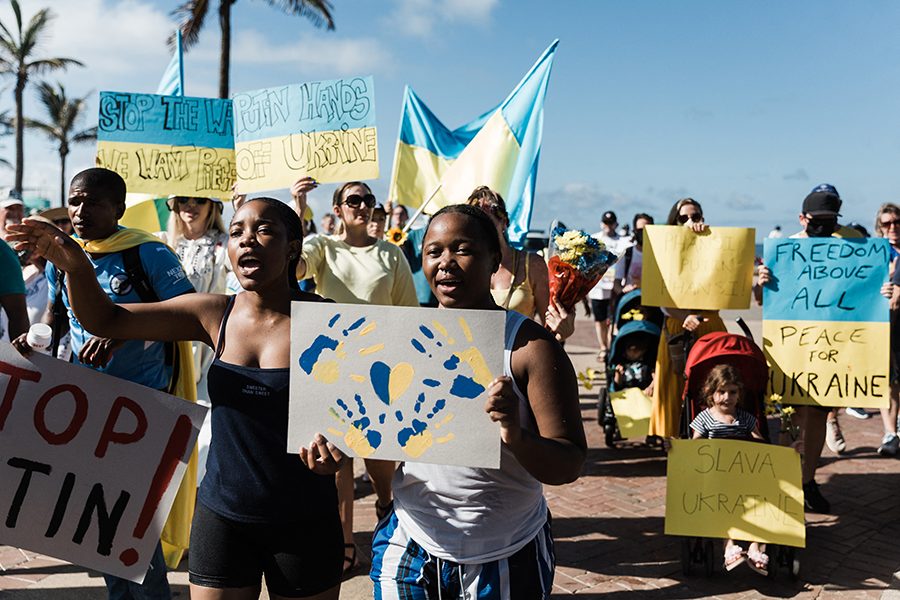
Spotlight
Russia and the Future International Order in Africa
The application of a Russian-shaped international order in Africa would have destabilizing repercussions for the continent.
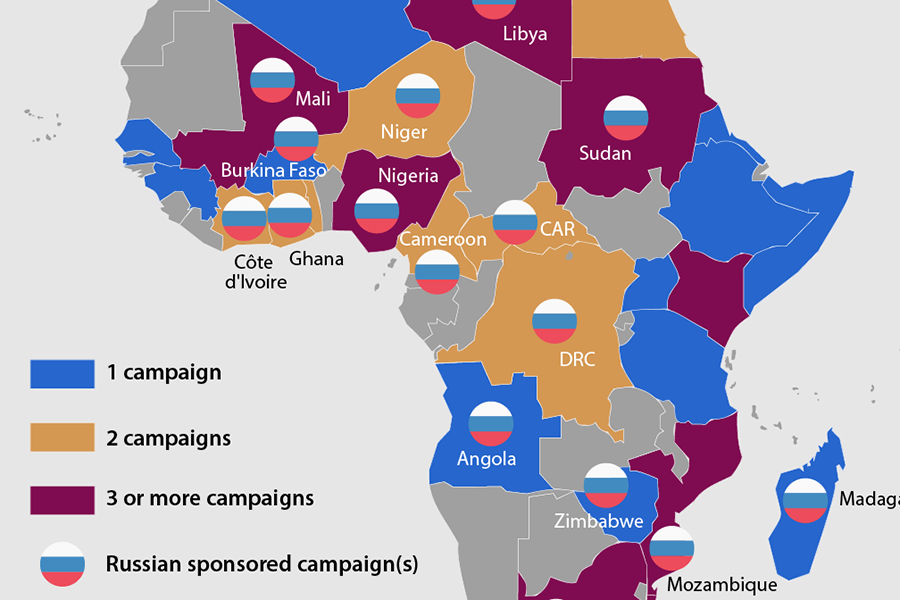
Infographic
Mapping Disinformation in Africa
Russia has pioneered a model of disinformation to gain political influence in Africa that is now being replicated by other actors across the continent.
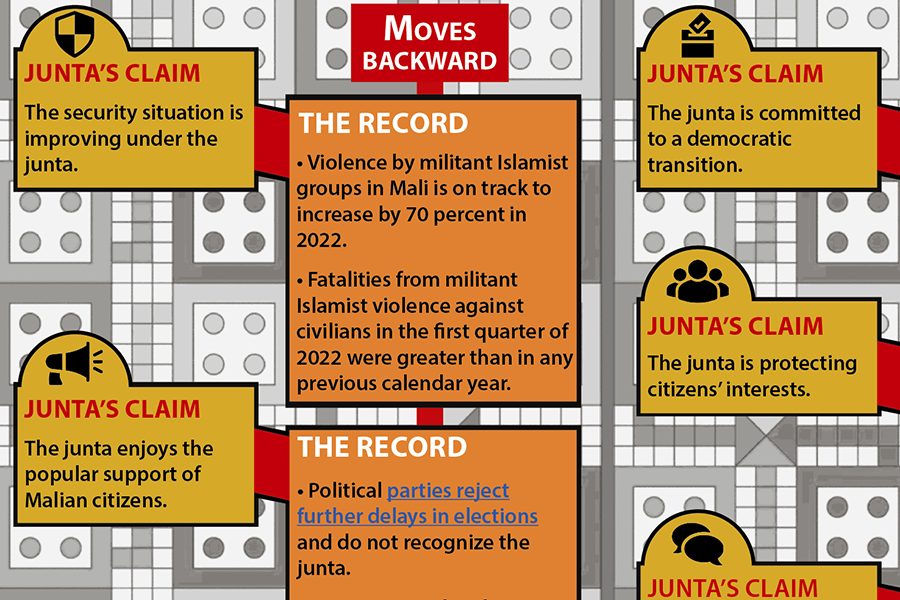
Infographic
Debunking the Malian Junta’s Claims
Mali’s military coup has thrust the country into a deeper security crisis as the junta quashes dissent and resists a democratic transition.
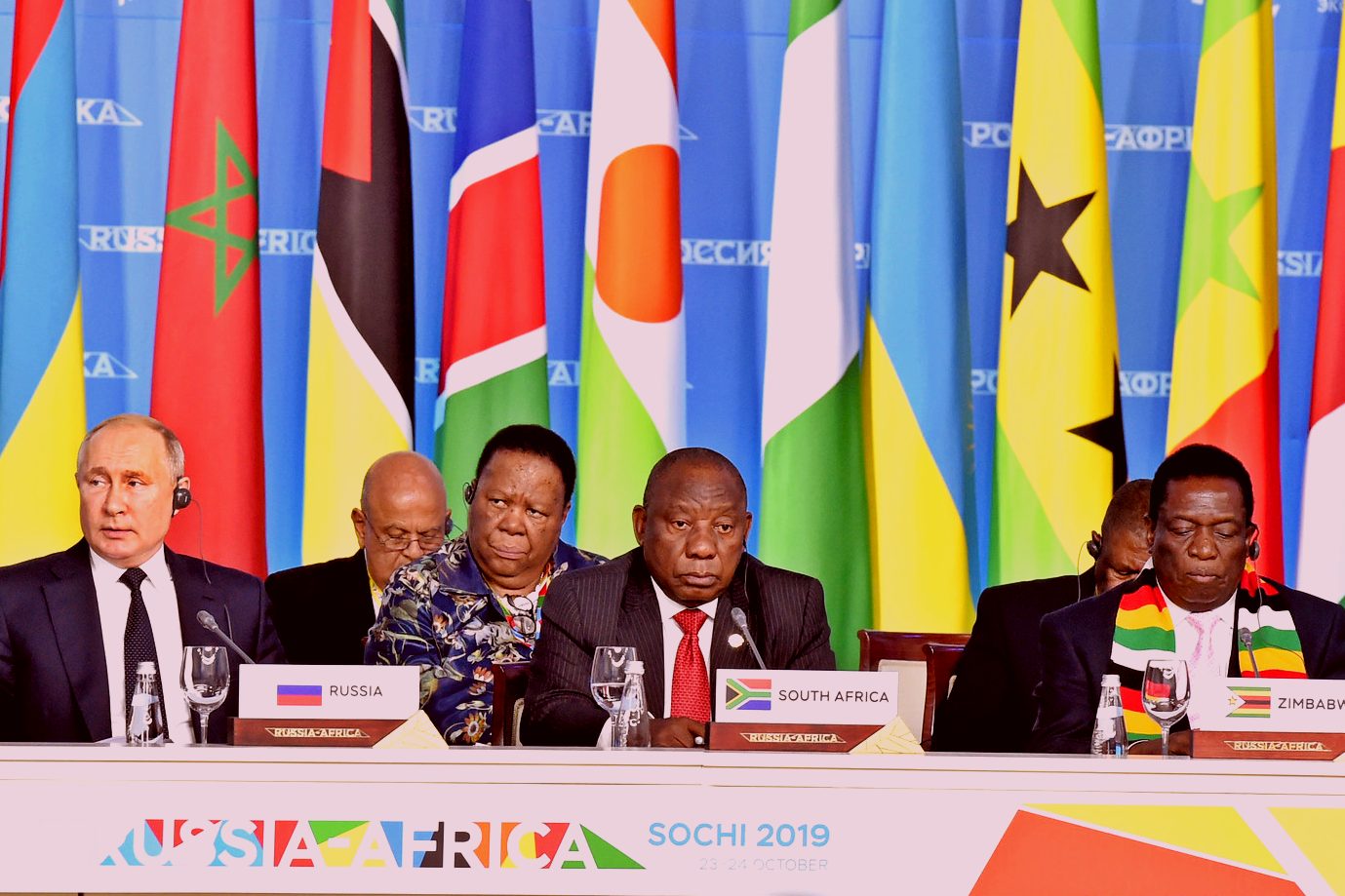
Spotlight
Strategic Implications for Africa from Russia’s Invasion in Ukraine
The invasion of Ukraine is a wake-up call to the implications of Russia’s attempts to export its governance model to Africa—with sobering consequences for African sovereignty and stability.
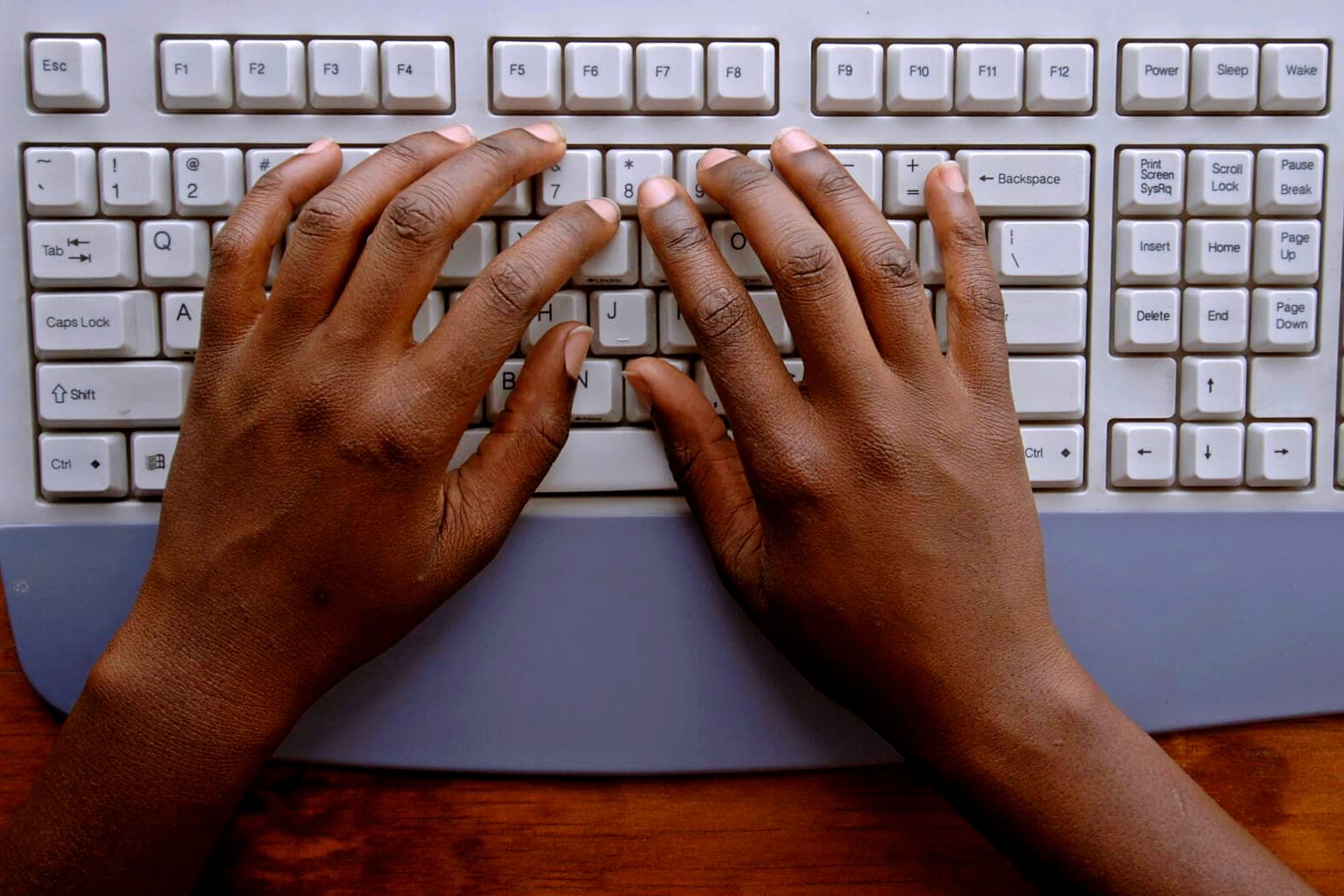
Spotlight
Deluge of Digital Repression Threatens African Security
African governments are using the pretext of security to restrict digital communications and citizens’ rights. In the process, they are inadvertently contributing to economic losses and greater instability.
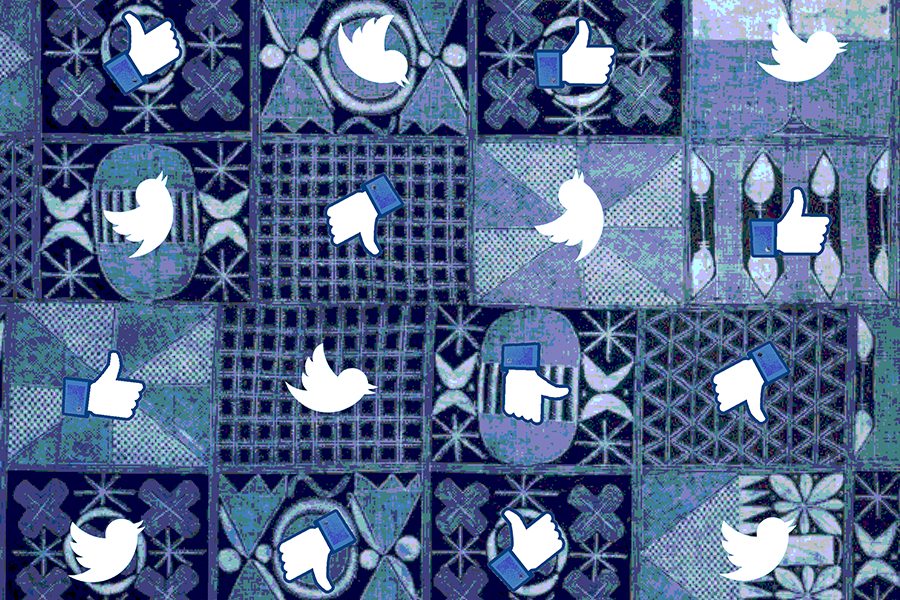
Spotlight
Domestic Disinformation on the Rise in Africa
A growing trend of domestic political actors deploying targeted disinformation schemes requires expanded fact-checking capacity in Africa and collaboration with social media organizations.
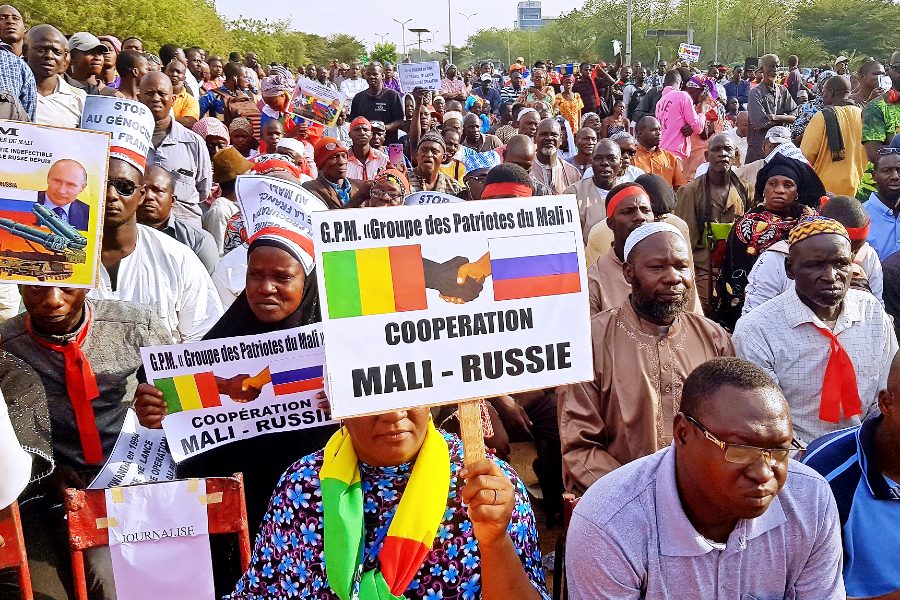
Spotlight
Russia’s Wagner Play Undermines the Transition in Mali
The prospective deployment of Russia’s Wagner mercenaries should not be confused with addressing Mali’s security situation but is a means of expanding Russian influence while propping up the military junta.
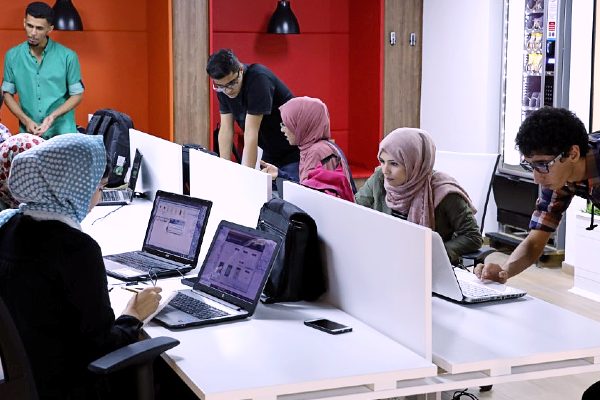
Spotlight
A Light in Libya’s Fog of Disinformation
Divisions within Libya’s civil war have been amplified by foreign-sponsored disinformation campaigns. Reconciliation and peacebuilding will require local actors to reclaim Libya’s digital spaces.
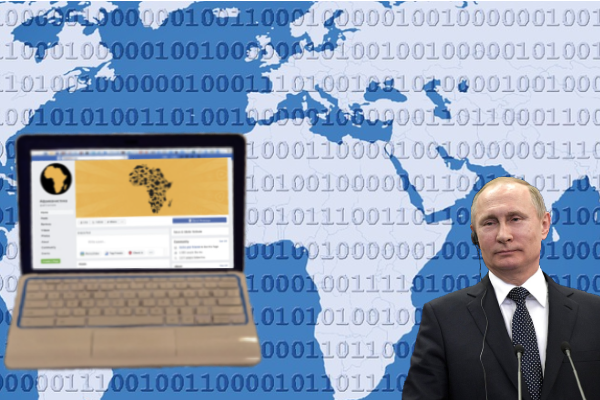
Spotlight
Russian Disinformation Campaigns Target Africa:
An Interview with Dr. Shelby Grossman
The growing sophistication of Russia’s disinformation campaigns in Africa demand greater vigilance from tech companies, internet watchdog groups, and governments.

